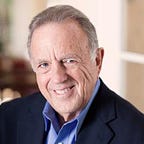A Path Through Polarization
December 2020
Recently I was approached by an HR professional who was curious about how the vision work that we do in Genysys might address the polarization of relationships in the workplace. The environment of polarization continues to escalate in today’s world. His question reminded me of a comment of a participant in an envisioning workshop that I facilitated almost ten years ago. This workshop was for members of a historical society that was deeply divided over what to do with a very unique asset. They had been given a castle in the middle of the local community. A majority of the society members didn’t want to have anything to do with the castle.
After the workshop one of the participants, who represented the majority of those who wanted nothing to do with the castle, came up to me and after thanking me for being willing to facilitate this workshop in such a contentious environment, made the following comment: “The common vision that we were able to develop today about the future of the castle has brought needed healing to our society.”
Upon reflection, I believe that the key to developing some healing and common ground was first to identify the common questions that all of the participants had about the future of the castle beyond the present reality. As they thought beyond five years, which is where we in Genysys begin, it was amazing the common ground in interests, hopes, and concerns that began to emerge. When the results of the visioning exercise around the questions of the long-term future of the castle began to be shared the participants began to see that they often had much more in common about the future than they ever thought possible. As one participant indicated, “Eighty percent of what we shared today is common and/or complementary, our problem was that we had, up to now, no forum or way to discover our common ground.”
Here are two questions that might help in discovering common ground in an environment of polarized differences:
What common questions do we, in any group of which we are a part (work, family, community, church, etc.), have about our future beyond five years?
How does each participant answer these questions as they look to that year of focus beyond five years?
The common and complementary responses to those answers can provide a bridge of hope for a common and positive future for those involved as it was for the historical society and its castle.
